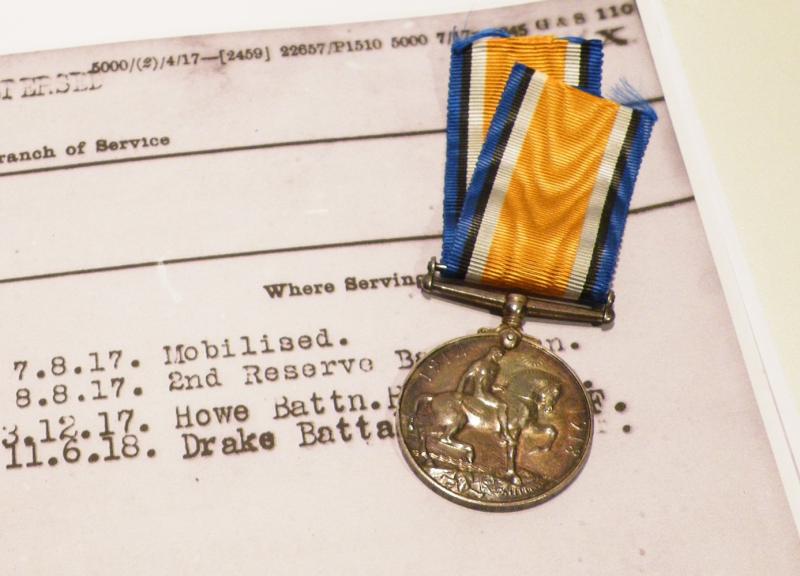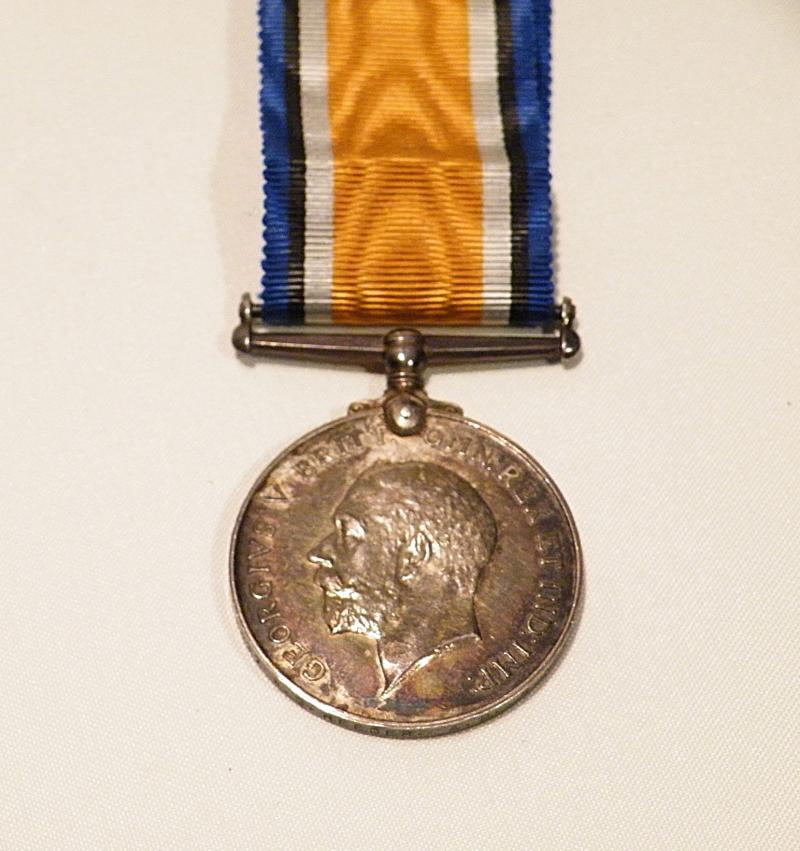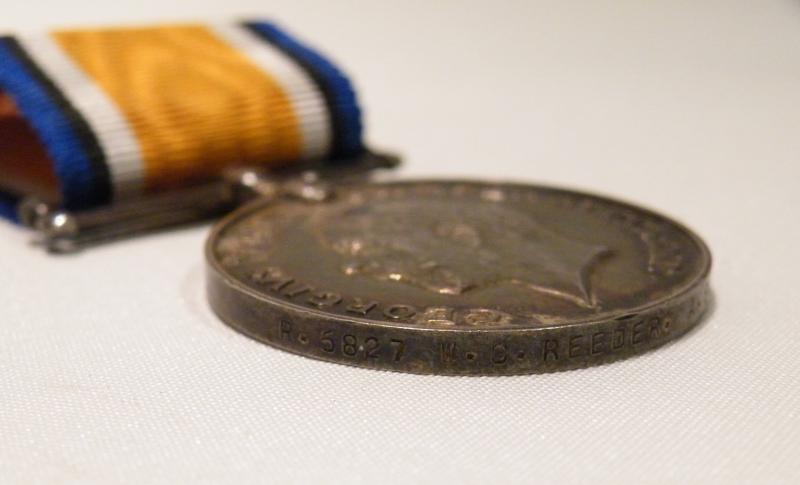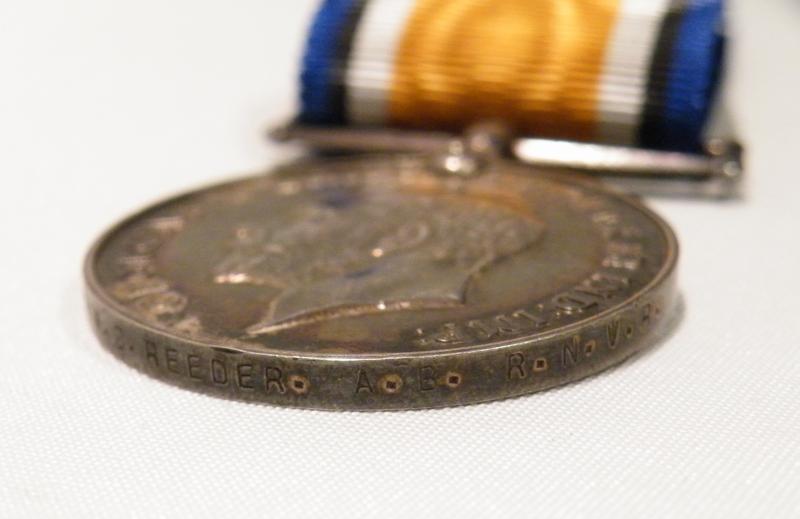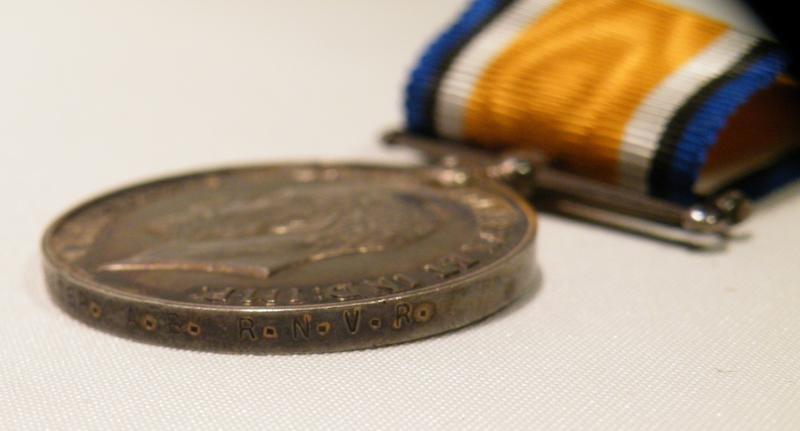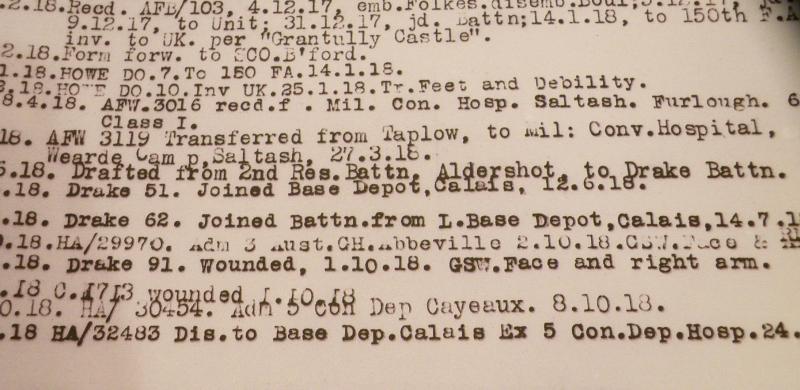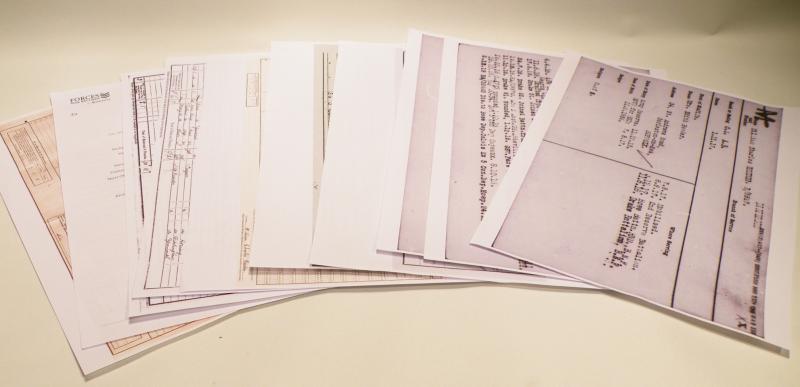WW1 BWM to Reeder RNVR RND Howe / Drake Battalion.
A very interesting British War medal correctly named to R-5827 W C Reeder RNVR.
William Charles Reeder was born in the June of 1886 in Great Yarmouth Norfolk; it is possible that his mother Sarah died while giving birth to him, as there is no trace of her after his birth date. He was raised by his father William who worked as a Railway Porter at the local station. Life for the working class was hard in the late 19th century, and William was sent out to work at a young age as a painter. He had various jobs through his young life including working on a fishing boat, which probably led to him joining the Royal Navy Volunteer Reserve. He married Edith Wright in 1916 in Great Yarmouth
However, he was enlisted into the Army reserve in 1915 before being transferred to the Royal navy Division and mobilised in August 1917 into the 2nd reserve and then to the Howe battalion. He arrived in France a short time later. In January he was invalided back to England with Trench Foot spending a few months in hospital before being sent back to the front-line joining Drake battalion in April 1918. He was with the battalion during the Battle of the Canal du Nord 27th September to the 1st October 1918, part of the Hundred Days Offensive. On the 1st of October Willaim was seriously wounded receiving a gunshot wound to the face and right arm, probably from machine gun fire, ending his service. He wasn’t discharged until 2nd September 1919 and returned home to Edith. After the war he took employment as a Cowman, at Home Farm, Somerlayton, Suffolk. And for the rest of his life, he was a casual farm labourer and it looks like William and Edith never had children. Sadly, William died in the 1950’s but Edith went on until around 1982 living the latter part of her life in Lowstoft.
The BWM is in excellent condition, and he is also entitled to the Victory medal and Silver War badge. Its comes with various research including service papers, census records etc.
Code: 30950
55.00 GBP

